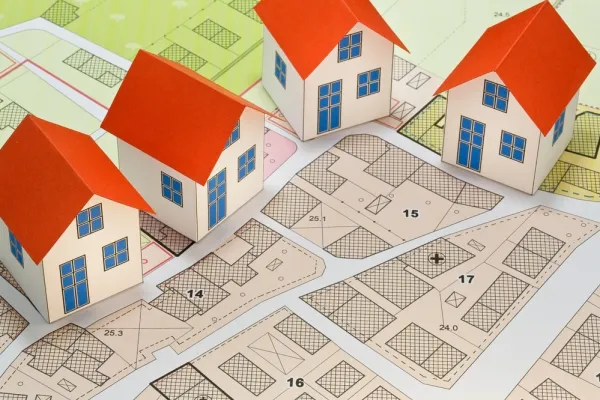If you are a first-time buyer looking to get onto the property ladder, you will need a mortgage to make it happen. Houses in 2024 are extremely expensive, so borrowing a large amount from a lender to afford them is almost the only way to start building equity in property.
As a first-time buyer, there are certain schemes set up by the government that make it easier for you to buy your first house. In addition, you can get more favourable mortgage rates from some banks compared to others, so getting a sense of all the options on the market is important.
In the blog below, we’ve outlined the best first-time buyer mortgage rates – and answered a few other important questions surrounding this topic. That way, you can hopefully take one step closer towards completion day.
What are the different types of mortgage I can choose from?
There are various mortgage types that you can choose from, each with its advantages and drawbacks. Some of the most common mortgage types are:
Fixed-rate mortgages
This is when the interest rate on your deal remains the same throughout the entirety of the term. For example, if you agree to a two or five-year fixed mortgage deal, then your monthly payments will not change during this time.
Standard variable rate mortgages
You will usually be charged a standard variable rate mortgage once an initial fixed rate mortgage ends. With this type of product, your repayment sum can change at any time, whenever the lender decides to do so.
Tracker mortgages
A tracker mortgage is similar to a variable rate mortgage, except it ‘tracks’ a base interest rate (in most cases, set by the Bank of England). This means that your repayments could theoretically change every month.
Discount rate mortgages
A discount rate mortgage slightly discounts a lender’s standard variable rate. However, since the standard variable rate can change significantly for each bank, a (for example) 2% discount can mean very different things for each lender.
Keep in mind that this type of mortgage usually comes with an early repayment charge, which is a factor that causes some people to be wary about them.
Capped mortgage
A capped mortgage is a type of variable rate mortgage, except it has an upper limit on the amount of interest you can be charged. This can be useful if you want reassurance that your monthly repayments will always be at most a certain figure.
Offset mortgage
An offset mortgage is usually linked to one of your savings accounts, meaning that the total balances of your accounts can be offset against the amount you owe on the mortgage each month. This can then calculate your mortgage interest on the lowered balance.
Keep in mind that for each of these types of mortgages, there are pros and cons and different steps involved with applying for them. You should conduct further research and speak to a mortgage advisor before you decide the best one for you.
Which schemes are available to help first-time buyers?
Many initiatives are designed to help first-time buyers get onto the property ladder in the UK. Some of the most common examples have been listed below:
First Homes
The ‘First Homes’ scheme enables some first-time buyers to buy their existing house for between 30% and 50% less than its market value. Some criteria are involved, such as being over 18 and not having a salary that surpasses £80,000.
Shared Ownership
The Shared Ownership initiative allows first-time buyers to purchase a share of a property while paying rent on the part they do not own. This enables them to own some equity in the house and hopefully build it up (known as ‘staircasing’) by raising capital to purchase more shares in the future.
Lifetime ISA
By creating a Lifetime ISA (Individual Savings Account), first-time buyers will have a 25% bonus added to their savings, up to £4,000. This means the government can give you up to £1,000 towards the deposit on your first property.
Deposit Unlock
The Deposit Unlock scheme targets first-time buyers and makes it possible to purchase a new-build property with only a 5% deposit. This is because the developer pays into an insurance policy for your mortgage provider, thereby decreasing their risk.
Right to Buy
‘Right to Buy’ is a scheme allowing someone currently renting a council flat to buy their property at a discount. You must meet certain criteria to apply for the initiative, so you should research these to find out if you comply.
There are several more schemes besides these, so you should speak to a financial advisor and/or a property expert who can point you in the right direction.
Best First-Time Buyer Mortgage Rates
According to Rightmove, the average mortgage rate for a five-year fixed period is 4.69%. Meanwhile, for a two-year fixed rate, it is 5.03%.
The size of your deposit will impact the offer you receive. For example, a 95% loan over a two-year fixed period will be roughly 5.59% in interest, while a 60% loan over the same fixed period comes to around 4.41%. This demonstrates the significantly better rate you can get when you put down more money up-front.
You will usually get a better rate if your mortgage is for a longer period. For example, an 85% loan over a five-year fixed term is currently around 4.58%, but if you loan this same amount over only two years, the rate will be 4.96%.
As mentioned above, schemes such as the Lifetime ISA can assist you in raising a larger deposit.
Some economists and property experts advise first-time buyers to wait a few more months before getting on the property ladder. This is because mortgage rates are expected to improve in the second half of 2024 as interest rates come back down.
Are mortgages more or less expensive in 2024 than they usually are?
As of early 2024, interest rates are much higher in the UK than in previous years. This has resulted in mortgages being considerably more expensive. During 2023, for homeowners on a tracker mortgage, monthly repayments were sometimes changing every month.
However, most economists expect that interest rates will slowly go back down throughout the second half of 2024. This means that mortgages will become more affordable for the average homeowner.
How much can I afford to borrow?
Generally, lenders allow you to borrow between 4 to 5 times your annual salary. This can vary slightly for each bank, so you should speak to them directly if you want a more detailed offer.
So, for example, if your salary is £30,000, you will likely be allowed to borrow between £120,000 to £150,000 for your mortgage. This will impact the offer you make on a property.
Click here for more guidance on how to make an offer on a house.
















